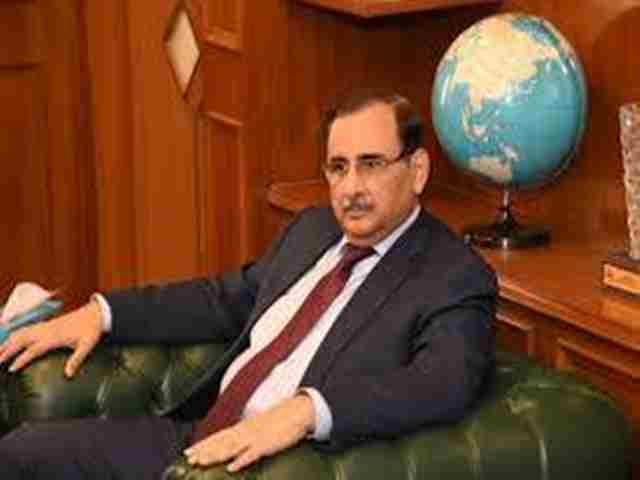KARACHI: The Businessmen Panel (BMP) has suggested measures to the government to avert prevailing economic crisis.
In a statement BMP Chairman Anjum Nisar said that the caution of the International Monetary Fund (IMF), Fitch and Moody’s Rating Agencies have also consistently been raised by the business community, urging the authorities that instead of passing on the blame to the previous governments’ miss-governance a serious and sustained attempt should be made to strengthen the economy, slashing current expenditure and raising revenue from direct taxes which still account for less than 35 per cent of all projected collections as per the budget 2022-2023.
READ MORE: FPCCI warns factories closure as rupee crashes against dollar
Nisar, who also served as former president of Pakistan Chambers of Commerce and Industry (FPCCI), suggested the government to use the available monetary policy tools wisely, stressing the need to adopt a holistic approach aimed at developing all economic, agricultural and industrial sectors in order to support the growth of the country.
He said that there is a need to devise a comprehensive strategy to promote the industry on immediate basis which will not only support the manufactures but also increase our export.
Nisar hoped that the government would pursue radical economic reforms through a long-term stable administration.
READ MORE: FPCCI demands 10% cut in petroleum prices
Instead of doing the usual there is need to raise revenue from those having ability to pay or, in other words, from direct taxes which as per the budget 2022-2023 account for less than 35 percent.
The BMP has been suggesting to the government to undertake major current expenditure cuts that require a major sacrifice from major recipients as well as reforms in all major sectors.
These measures would not only decrease the pressure to generate higher revenue from indirect taxes like petroleum levy, also decreasing the need to borrow externally which is estimated at 36 billion dollars this year alone that in turn would reduce debt servicing costs.
READ MORE: FPCCI denounces super tax imposition
He demanded the government to offer special package of power and gas tariffs for rapid industrial growth on the pattern of China. As a result of high tariffs and taxation, cost of production is increasing and cannot compete in global market thus badly hampering export substantially.
Moreover, it is essential to have an agricultural policy that increases the supply of raw material to agro-based industries, both domestic and foreign, such that it can help domestic textile producers regain lost competitiveness in the world market.
He said that more concerning is Moody’s projection that the central bank would continue to increase rates over 2022 because of ongoing elevated inflationary pressures.
There is elevated inflation that can be laid at the doorstep of the Fund’s prior conditions due to three reasons. First, the policy rate in this country has little if any impact on headline inflation, which was 21.3 percent for June but does impact on core inflation that registered 11.5 percent for June while the weekly sensitive price index 33.12 percent for the week ending 14 July 2022.
READ MORE: FPCCI identifies tax anomalies in budget 2022-2023
In other words, raising the policy rate to check headline inflation is unlikely to bear fruit for such a linkage does not exist in this country.
Second, inflation is also imported due to the eroding rupee which has been taking a severe battering attributable to rising political uncertainty but it is also partly due to an undervalued rupee.
He said that the rise in the policy rate will impact on the input costs of the large-scale manufacturing sector that is a significant contributor to not only the GDP, which has an impact on tax collections, but also to employment levels.
The Fund’s insistence on taxing more, a part of the Finance Act 2022, would erode their purchasing power considerably.
READ MORE: Move to legalize cryptocurrency trading in Pakistan
Quoting the data, he said the current account deficit July-May 2022 is $15.2 billion which is a source of serious concern for two reasons.
First, because while in 2018 the country was not yet on a Fund program and therefore had the entire program period of 39 months to implement the conditions, though the then economic team leaders did not opt for this approach, yet today the onus of harsh upfront conditions is all the greater because the country is at the tail end of the program period, and this is in spite of the fact that the Fund has granted an extension of around nine months.
He said that the fiscal consolidation demands by the Fund have been adequately met in the Finance Act 2022. Nisar said that another rating agency, Fitch, has followed in the footsteps of Moody’s by revising its outlook on Pakistan to negative from stable.
Fitch said, among other things, that there are considerable risks to the IMF program’s implementation and to Pakistan’s access to the external finance after June 2023.
